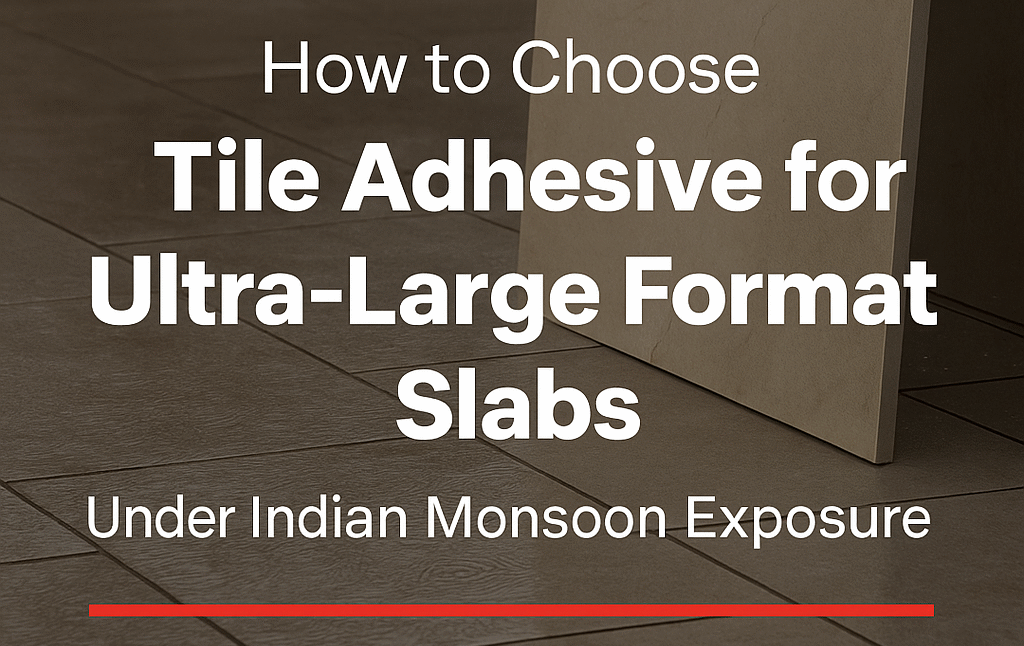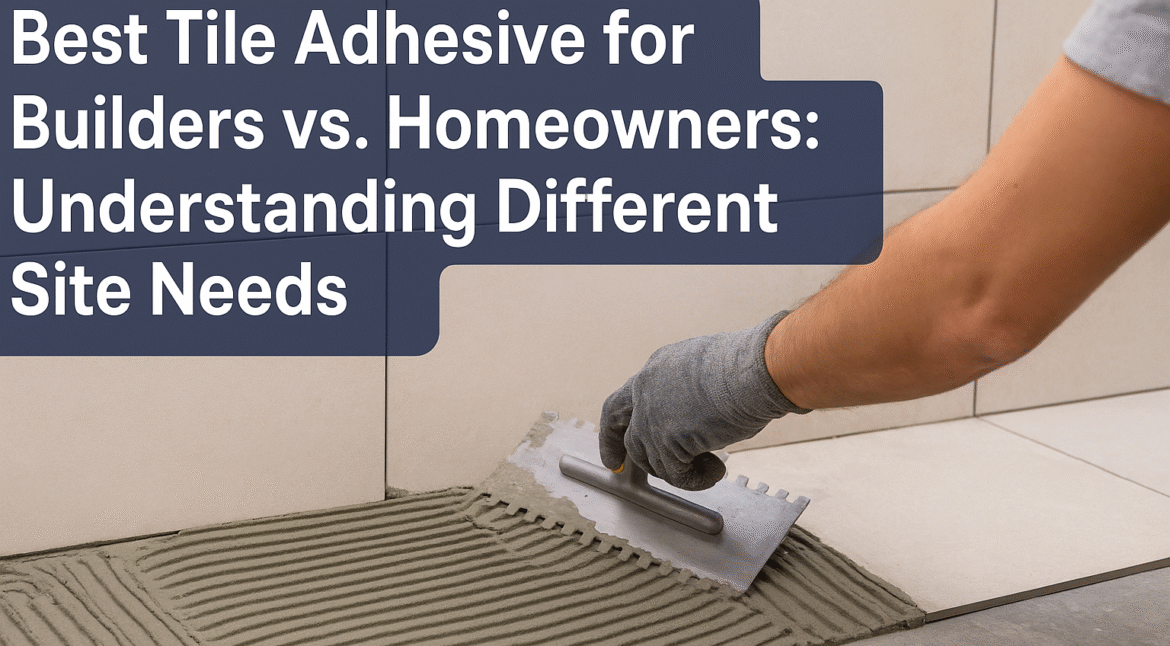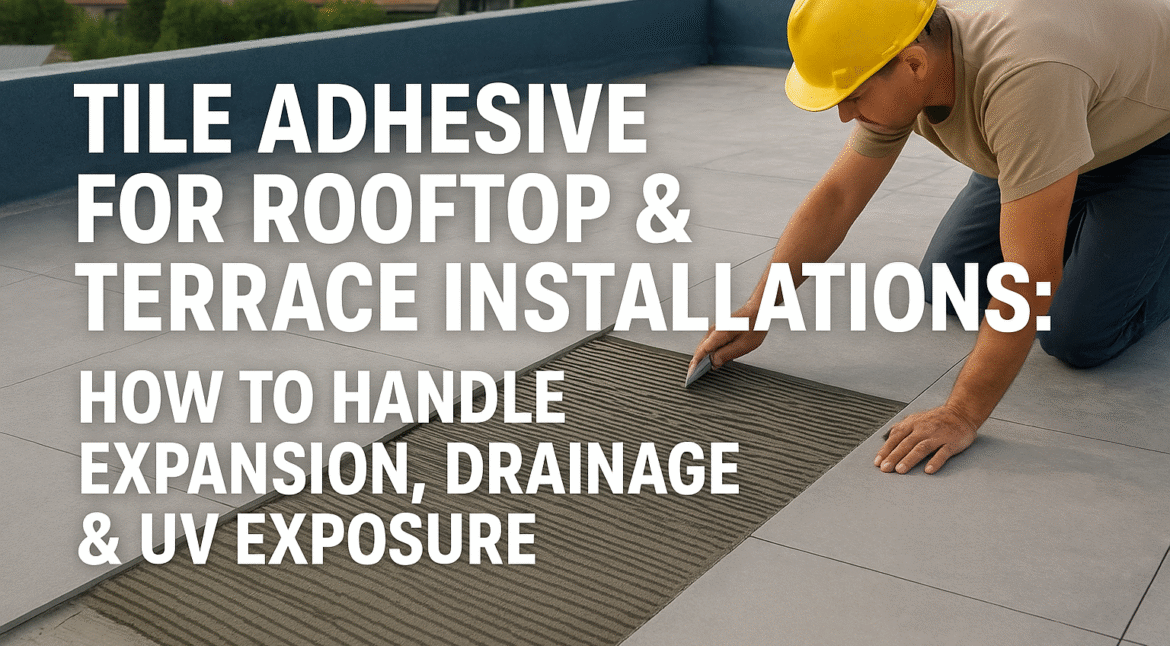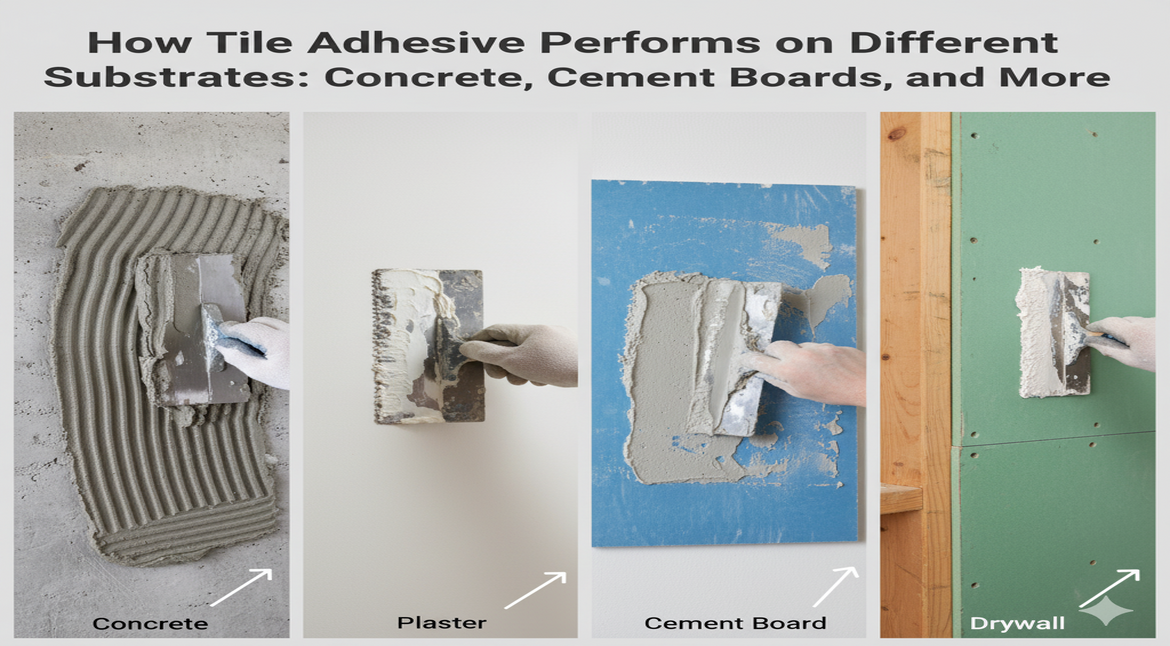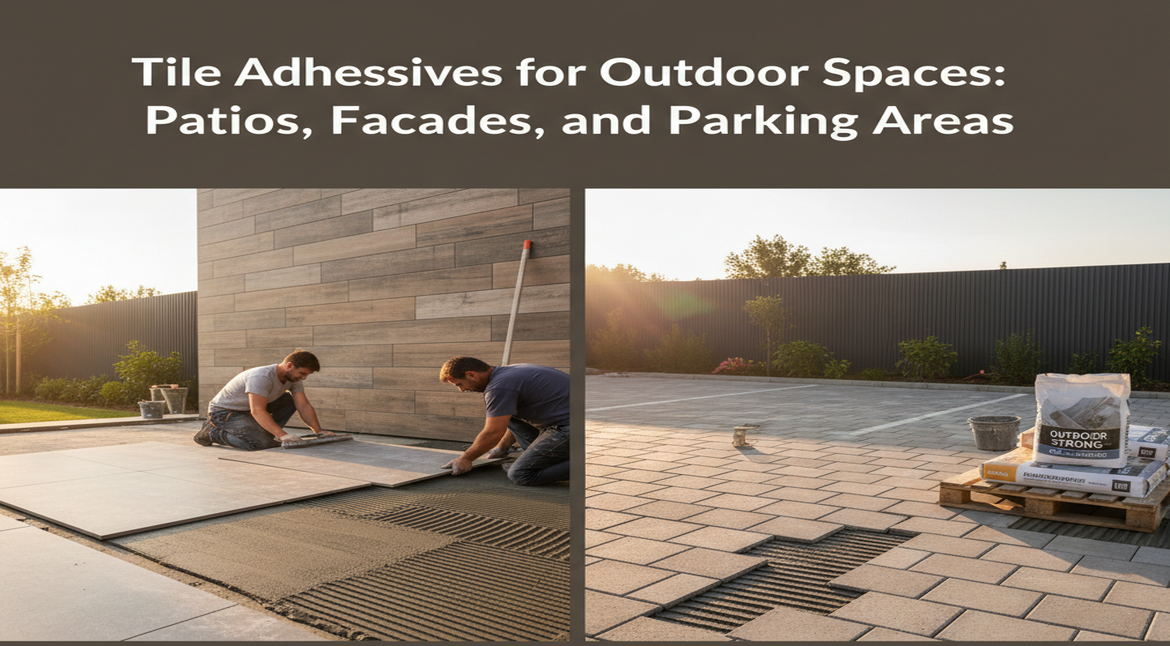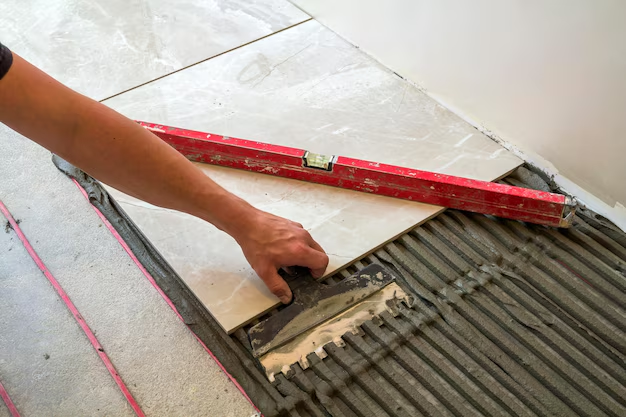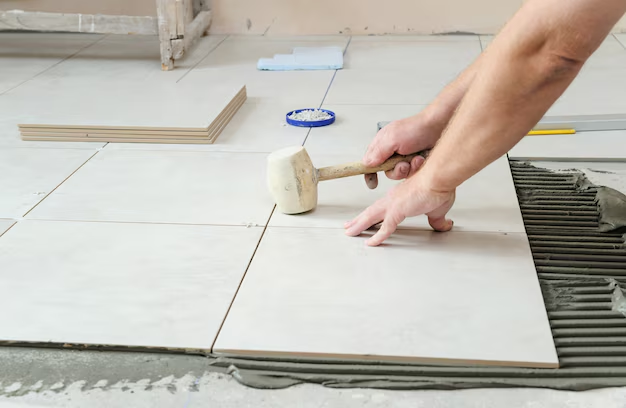Why Flexible Tile Adhesives Are Critical for RCC Structures and Dynamic Surfaces Introduction Reinforced Cement Concrete (RCC) forms the structural base for most modern buildings — from slabs and columns to decks and facades. However, RCC surfaces are never completely static. They experience minor but continuous movement due to temperature…
Choosing Tile Adhesive for High-Vibration Zones: Metro Stations, Airports, and Industrial Floors Introduction High-vibration areas such as metro stations, airports, and industrial floors place extreme mechanical stress on tiles. Continuous movement from trains, foot traffic, and equipment creates micro-shifts that weaken traditional cement-based adhesives over time. The result — cracked…
How to Choose Tile Adhesive for Ultra-Large Format Slabs Under Indian Monsoon Exposure Tiling with ultra-large format slabs has become a major trend in Indian architecture. From luxury living rooms to commercial lobbies and exterior facades, these large tiles create a seamless, modern look. But installing them isn’t as simple…
Best Tile Adhesive for Builders vs. Homeowners: Understanding Different Site Needs When it comes to tiling, one of the biggest mistakes people make is thinking that all tile adhesives are the same. The truth is, the right adhesive can make or break a project—especially in India, where temperature, moisture, and…
Tile Adhesive for Rooftop & Terrace Installations: How to Handle Expansion, Drainage & UV Exposure Rooftop and terrace areas are among the most challenging surfaces in construction — extreme heat during the day, cool temperatures at night, continuous UV exposure, and frequent wetting from rain. These cycles of expansion, contraction,…
How Tile Adhesive Performs on Different Substrates: Concrete, Plaster, Cement Boards, and More Choosing the right tile adhesive is critical for ensuring strong, durable, and long-lasting tile installations. The performance of a tile adhesive largely depends on the type of substrate it is applied to. Different substrates, such as concrete,…
Tile Adhesives for Outdoor Spaces: Patios, Facades, and Parking Areas Outdoor tiling presents unique challenges compared to indoor applications. Sunlight, heavy rainfall, temperature fluctuations, and high traffic can compromise tile adhesion if the right tile adhesive is not used. Selecting the correct adhesive ensures long-lasting performance, prevents cracking or tile…
Choosing Tile Adhesive for High-Rise Construction: Wind, Load, and Vibration Considerations Yes, the selection of the appropriate tile adhesive is necessary in high-rise construction. Advanced solutions like polymer tile adhesive, epoxy tile adhesive, and PU-based adhesive are required to meet the demands of wind pressure, structural loads, and constant vibrations,…
The Role of Tile Adhesive in Seismic Zones: Flexibility and Crack Resistance Yes. The failure of tiles is common in seismic areas since the traditional cement mortar is not able to withstand the movements of the ground. Modern tile adhesive, particularly Polymer tile adhesive and PU based adhesive, is flexible…
Why Do Tiles Pop Off? Common Reasons and How Tile Adhesive Fixes Them The main causes of tiles cracking off include improper surface preparation, adhesive selection, area coverage, and movement and exposure to moist weather. This can be avoided most effectively by applying a high-performance tile adhesive, such as the…
Innovative Uses of Tile Adhesive in Modern Construction Beyond Flooring and Walls For years, tile adhesive was seen as a simple solution for fixing tiles on floors and walls. Builders often relied on cement mortar, but the results were inconsistent: weak bonding, hollow sounds beneath tiles, cracks, and water seepage.…
Why Polymer-Modified Tile Adhesives Are Becoming the Best Choice for Builders In modern construction, builders are demanding more than just strength—they need reliability, speed, and long-term durability in every material they choose. Traditional cement-sand mortar, once the go-to for tile installation, is now being replaced by polymer-modified tile adhesive, which…





